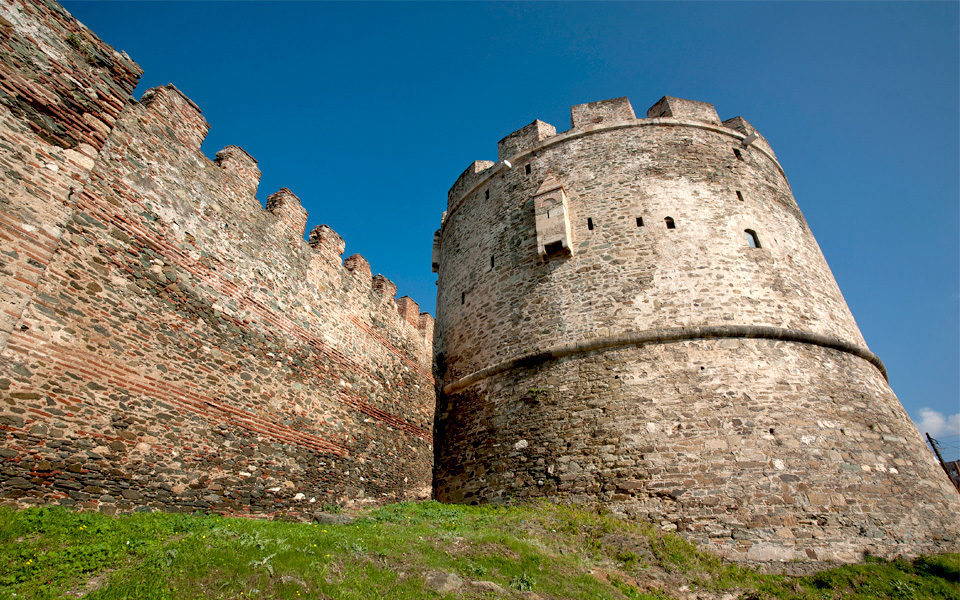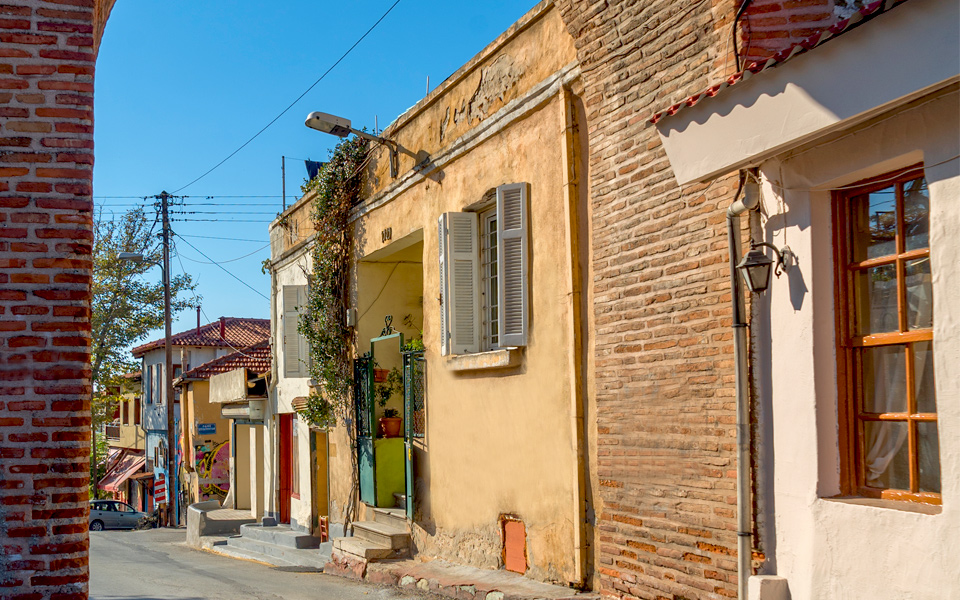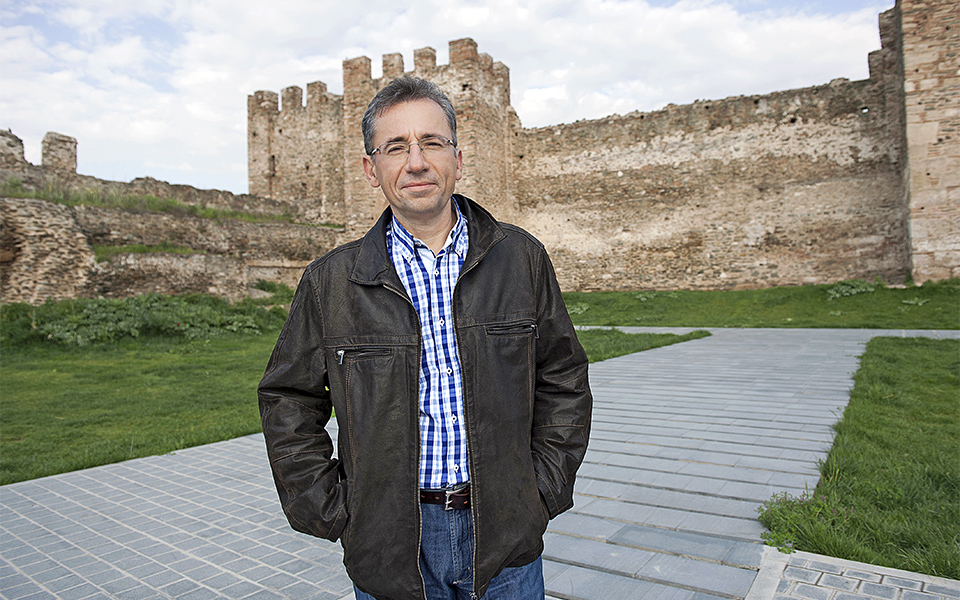Thessaloniki’s soul resides in an area more recent than the ancient Roman center boasting Galerius’ Palace, Arch and Rotunda. I’m talking about the Upper Town (Ano Poli), nestled in the embrace of the city’s northern medieval wall. During the period of Ottoman rule, it was where those of high rank lived, because of the view of the port and the quality of the air, which was much sweeter than in the crowded neighborhoods down the hill. Most of the Muslim population gradually settled around the mansions of the pashas, building homes painted pomegranate-red and ochre with slatted windows, behind which shy girls spied secretively onto narrow stone streets winding higgledy-piggledy uphill. This Upper Town, the city’s soul, happily remains to this day a charming miscellany: a neighborhood of family homes surrounded by gardens filled with flowers, intriguing ruins, and imperturbable cats sunning themselves in the middle of the road, often barring your way.

I was born and raised on the outskirts of the city center, at the very edge of the labyrinth above. For decades, I’ve been climbing the hill and wandering through its bystreets. To my surprise, I sometimes still get lost, because this part of the city with its aged buildings defies, to my mind, any attempt at mapping. It’s like a labyrinth, though one without a Minotaur: those who get lost here need not fear becoming the monster’s next meal. Quite the opposite in fact; for they will more than likely enjoy a meal at one of the many small tavernas found along the way or indulge in an iced coffee to cool down after the rigors of the climb.
The neighborhood’s landmarks often serve as a means of orientation. There’s Vlatadon Monastery from where the occasional high-pitched cries of peacocks can be heard. There’s the jagged part of the ancient wall that looks like the teeth of a gigantic comb, nicknamed “the battlements” by some. And to the northeast stands the Trigonion Tower, marking one of the boundaries of the labyrinth.
“This part of the city – its unfathomable soul – will never be charted.”

I never consult a map. My compass is the sea behind me, and the steps, covered with growing grass, winding down the hill. On the few asphalt roads, an occasional bus passes, wheezing uphill. In the neighboring cobblestoned streets you find refuge from exhaust fumes and the rush of traffic. You find old refugee homes, balconies bedecked with vines and canaries in cages, couples in love, photographers lying in wait for the sun as it sets over the Thermaic Gulf.
Upper Town has managed to escape the clutches of development. It knows a thing or two, and if you allow it, it will take you under its wing and teach them to you too. Passing in front of doorways, you bid the residents goodnight as you make your way up. “This looks familiar,” you tell yourself as you walk in a certain direction. But you stop in your tracks: “Not this way, sir, it’s a dead end.” You listen to the voice and smile politely; yes, you’ve miscalculated once again. This part of the city – its unfathomable soul – will never be charted. It is like a long lost love that continues to mesmerize, inexhaustible and always new.
• Isidoros Zourgos is an author.











